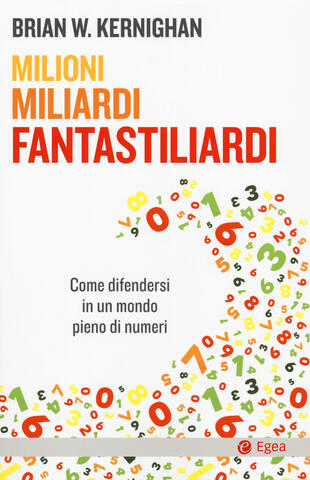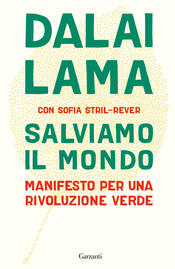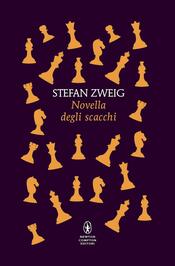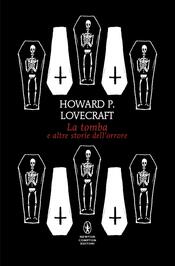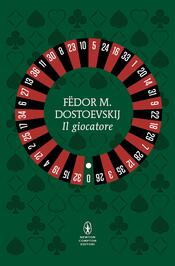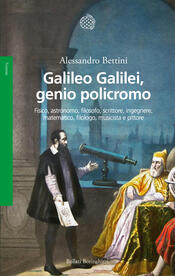Milioni, miliardi, fantastiliardi. Come difendersi in un mondo pieno di numeri
Acquistalo
Sinossi
Quante volte ci è capitato di sentirci intimiditi, confusi o addirittura ingannati dai numeri - specie quando sono molto grandi? Sui media si parla spesso di milioni, miliardi e bilioni, non di rado commettendo errori marchiani o presentando i dati in maniera scorretta. Non comprendere i numeri può avere conseguenze molto serie per alcune delle decisioni più importanti che ci troviamo a prendere: per chi votare, che cosa comprare, se procedere o meno a un dato investimento. In questo libro tanto agile quanto illuminante, Brian Kernighan insegna a tutti - anche a chi proprio si sente negato per la matematica - come demistificare i numeri da cui ci sentiamo assaliti tutti i giorni. Traendo esempi da un'ampia varietà di fonti - inclusi il giornalismo, la pubblicità e la politica - l'autore illustra i diversi modi in cui i numeri, le unità, le dimensioni, i grafici possono sviarci e creare percezioni errate. E mostra come ognuno di noi, ricorrendo ad alcune semplici idee e scorciatoie, può imparare con facilità a riconoscere errori comuni, determinare quali numeri sono verosimili e fare i propri calcoli in autonomia quando necessario. Fornendoci una serie di strumenti utili a evitare di essere ingannati dai numeri, "Milioni, miliardi, fantastiliardi" è un vero e proprio manuale di sopravvivenza in un mondo sempre più sommerso dai big data.
- ISBN:
- Casa Editrice:
- Pagine: 150
- Data di uscita: 12-09-2019
Recensioni
The news is riddled with numbers that we often taken for granted. Brian Kernighan sets out to give us the tools to test numbers in the headlines and see if they really add up. The fact that they often don't is made clear by the range of examples Kernighan gives where a news source has got a value wr Leggi tutto
*Millions, Billions, Zillions: Defending Yourself in a World of Too Many Numbers* by Brian W. Kernighan is a concise, accessible guide to developing numerical literacy in an era overwhelmed by misleading data. Published in 2018 by Princeton University Press, this 176-page book aims to equip readers, Leggi tutto
The world of information security is awash in figures and statistics. From the estimated expensive costs of password resets, to cost of a data breach studies, the endlessly quoted Verizon Data Breach Investigation Report, to the near monthly hundreds of millions of customer’s data breaches, and coun Leggi tutto
Brian Kernighan [1942-], a Canadian computer scientist, was one of the three scientists at Bell Labs who revolutionized their field by devising the UNIX operating system. Later, he co-authored the first book on the highly-influential C programming language. So, this book on huge numbers and their im Leggi tutto
The book equips the skeptic's toolset with some practical quick math and estimation skills. The author draws on examples from the press, social media, and his own encounters out in the wild. Written in a conversational tone, the book is a really quick read. Most of the examples are either from 2007- Leggi tutto
數據會說話,還是會騙人? 我對數字非常敏感,很多時候都能指出當中的錯誤或識破操弄數據的目的。 例如今日新聞:XX集團宣布,截至11月11日晚上11時59分,優惠期間內,購物用戶數按年增長超過20%,XX採銷直播訂單量按年大升3.8倍,有逾1.7萬個品牌成交額按年增長超過5倍⋯ 這些通告幾乎毫無意義,因為沒有實質數字,尤其是沒有用過去幾年的資料作參考,就好像孩子告訴母親默書分數增長一倍,原來只是由13分變成26分:還是不合格。 《一輛運鈔車能裝多少錢》(Millions Billions Zillions)這本書指出,「數感」(對數字的感覺)是可以訓練出來的。作者提醒讀者了解數據時要注意的地方,例如:數 Leggi tutto
Interesting... fun... useful and educative. Joins a hand full of similar books explaining and illustrating how to discern factual realities in the blizzards of misleading, mistaken or otherwise incorrect mathematical news items and claims that besiege us daily ... greatest, least, most, startling pe Leggi tutto
This is a great book to read with a math class, kids who have passed 5th grade arithmetic. There are a few rules of thumb which these students are not ready to fully understand the origin of (half time and compound interest), and these can be safely skipped; everything else is accessible. I intend t Leggi tutto
A lovely, short, readable book that equips the reader with a handful of tools to think critically about the numbers we read in the media. It’s breezily written in a friendly tone and is filled with engaging examples. Thoroughly recommend it - and I say this as someone whose mental arithmetic is pret Leggi tutto
Citazioni
Al momento non ci sono citazioni, inserisci tu la prima!
